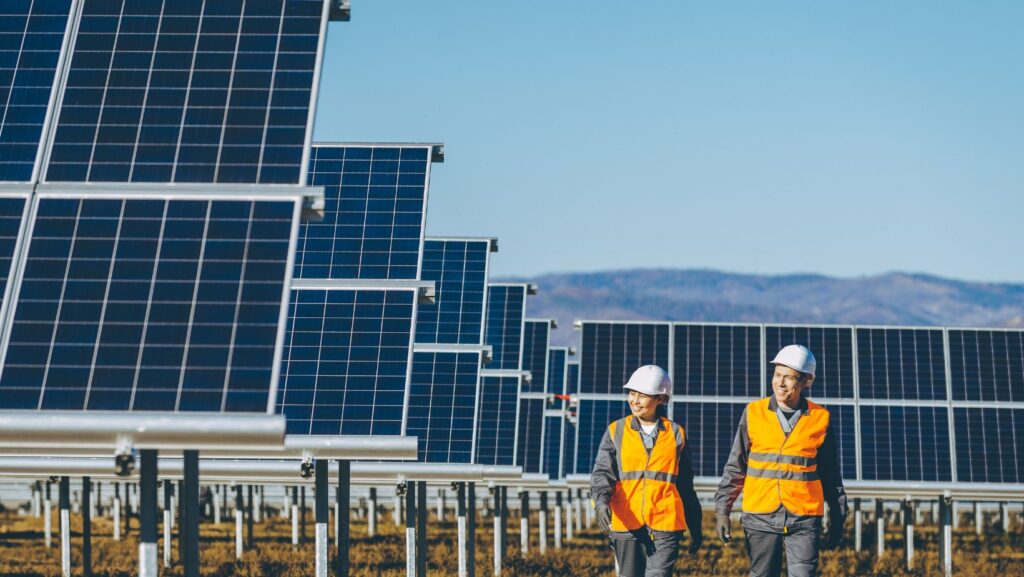The agricultural industry is transforming, driven by changes in crop demand or weather patterns and energy innovation. Rising fuel and electricity costs have pushed farmers to explore new ways to power their operations efficiently and sustainably. We will explore how solar companies are stepping into this landscape with custom energy solutions that reduce overhead, support long-term sustainability goals, and keep essential operations running more reliably. Farms have unique power needs—irrigation pumps, cold storage, lighting, and processing equipment all consume substantial energy throughout the year. Traditional energy sources can be inconsistent in cost and availability, especially in rural areas with aging grid infrastructure. Solar energy offers a compelling alternative, allowing farms to harness abundant sunlight and convert it into clean, consistent power. Through long-term savings and increased energy independence, solar power is fast becoming a practical tool that fits naturally into the rhythm of modern farming.
The Shift Toward Sustainable Farming Practices
- Lowering Operating Costs with On-Site Solar Generation
Energy is one of the most significant ongoing operational expenses for many farmers. Keeping water pumps running during dry seasons or powering climate control systems for livestock, electricity, or diesel fuel costs can significantly impact profitability. Solar energy provides a solution by generating electricity directly on-site, cutting monthly utility bills, and reducing reliance on fluctuating fuel prices. Once installed, solar panels require minimal maintenance and deliver energy for decades, helping farms stabilize their financial planning and weather market uncertainties. With the right system design, farms can offset most or all of their electricity use, especially during the sunniest months, which often align with peak operational periods.
Programs offered by companies such as North Valley Solar Power are making it easier for agricultural operations to adopt these systems by evaluating site-specific energy use and offering financing options tailored to seasonal revenue cycles. The goal is not just installation—it’s building a more predictable, cost-effective energy future for agriculture.
- Powering Remote and Off-Grid Equipment in the Field
Many farms span large areas where bringing traditional electrical infrastructure is impractical or expensive. In these settings, off-grid power is essential for running irrigation controllers, security systems, lighting, or equipment charging stations. Solar energy is ideal for remote power needs, especially with battery storage. Farmers can install solar panels in specific locations, such as at well pumps or greenhouses, where consistent access to power supports daily productivity. These solar arrays can operate independently or supplement grid-connected areas, reducing strain and increasing reliability. Solar’s flexibility makes it particularly attractive for field use—systems can be scaled to meet seasonal or site-specific needs and then upgraded or relocated as necessary. This approach enhances operational agility while minimizing environmental impact. As climate patterns grow less predictable, farms that rely on solar power are better equipped to adapt and continue working through disruptions. It’s not just about reducing carbon footprints—it’s about building a resilient foundation for year-round performance.
- Enhancing Water Management and Irrigation Efficiency
In water-scarce regions, energy and water are closely linked. Irrigation systems often consume large amounts of electricity to move water across fields, making them a natural target for solar-powered upgrades. By powering pumps and filtration systems with solar energy, farms can run irrigation systems more efficiently and without interruption, especially during peak sunlight hours when water demand is often highest. Many solar companies work directly with agricultural engineers to align energy systems with irrigation cycles, ensuring optimal timing and coverage.
Smart irrigation controllers can be integrated with solar systems, allowing farmers to monitor performance remotely and adjust settings based on soil moisture or weather data. This level of precision saves energy and conserves water—an increasingly important goal in regions facing long-term drought. Solar companies are valuable partners in rethinking how water is delivered on the farm, helping reduce waste, and supporting more innovative agricultural practices through dependable, clean power.
- Improving Farm Resilience and Reducing Downtime
Reliability is a critical factor in farming, where timing often means the difference between success and loss. Power outages—whether caused by grid failure, storms, or equipment overload—can disrupt operations and lead to product spoilage or system malfunctions. Solar power, especially with backup batteries, provides energy independence that shields farms from these disruptions. Battery systems store excess solar energy during cloudy periods or at night, ensuring that critical infrastructure such as refrigeration units, electric fencing, and lighting systems remain functional regardless of external conditions. This capability is particularly valuable for farms that grow perishable crops or rely on automated equipment. Solar companies are now designing integrated systems that anticipate energy use patterns and scale accordingly, allowing farmers to make the most of available resources without overbuilding. The added reliability reduces stress and labor interruptions, helping agricultural operations stay on track during unforeseen events.
Solar companies are playing a key role in modernizing agriculture by offering energy solutions that align with the demands and unpredictability of farm life. Solar energy supports the economic and environmental goals of today’s farmers through lower operational costs, off-grid power access, smarter irrigation systems, and improved resilience. This partnership reflects a broader trend of integrating technology into tradition—where innovation enhances rather than replaces hard-earned farming knowledge. As more solar companies tailor their services to agricultural clients, the adoption curve continues to steepen, especially in regions with high sun exposure and limited energy infrastructure. Solar is becoming more than a utility—it’s a strategic advantage that empowers farmers to take greater control over their energy future while contributing to global sustainability goals. In this new era of agriculture, where precision, resilience, and resource efficiency are paramount, solar power is emerging as a dependable and productive ally.



